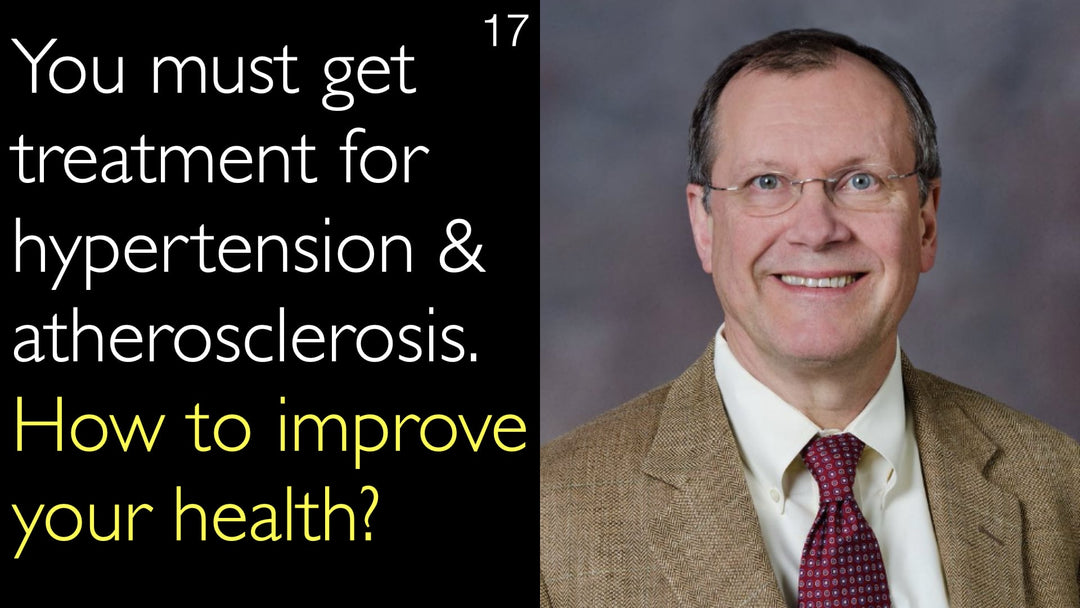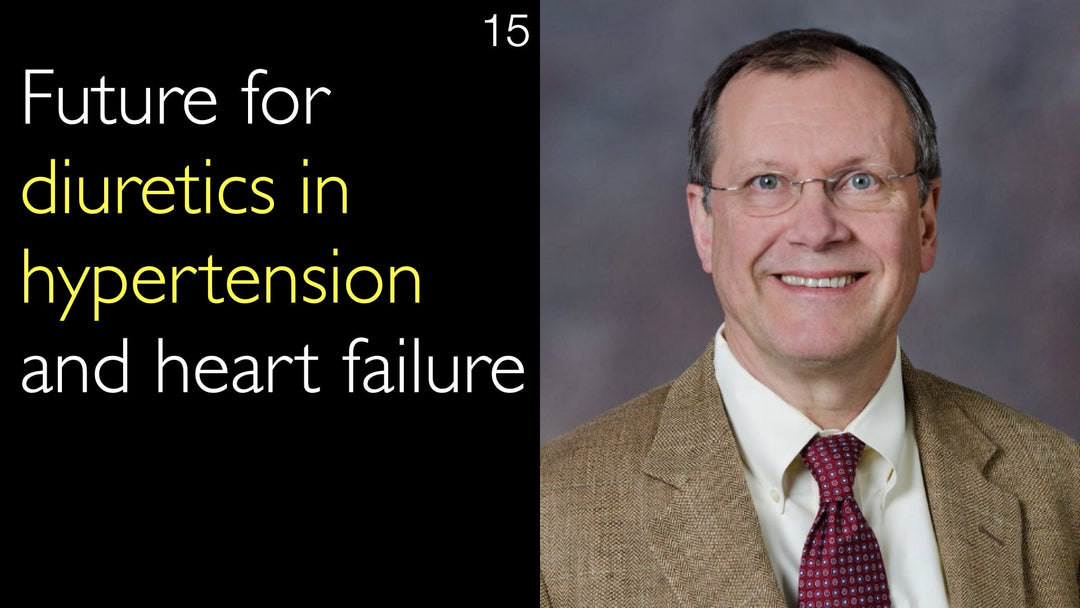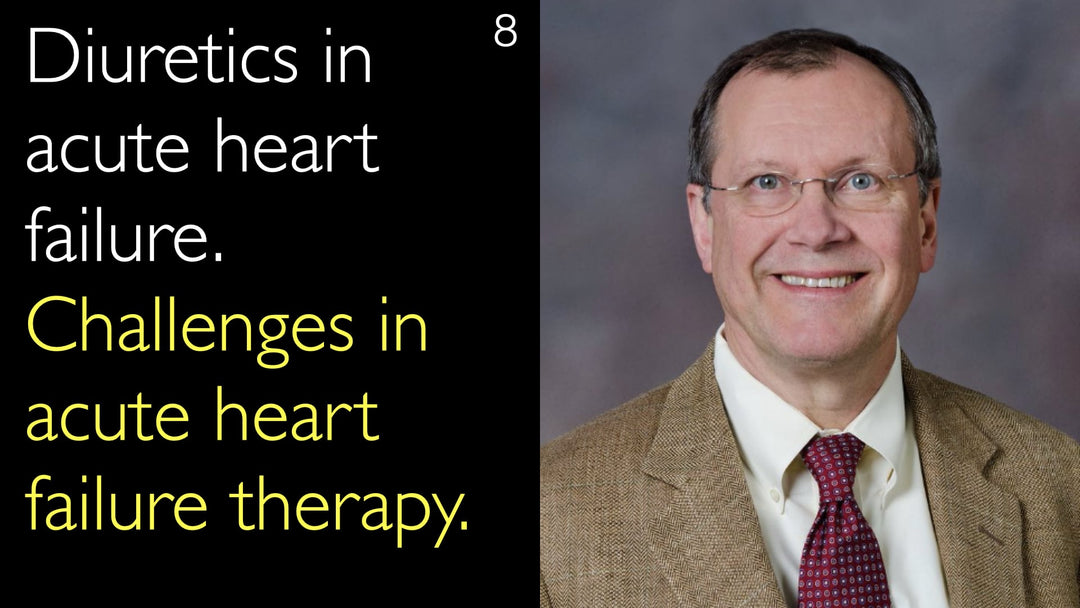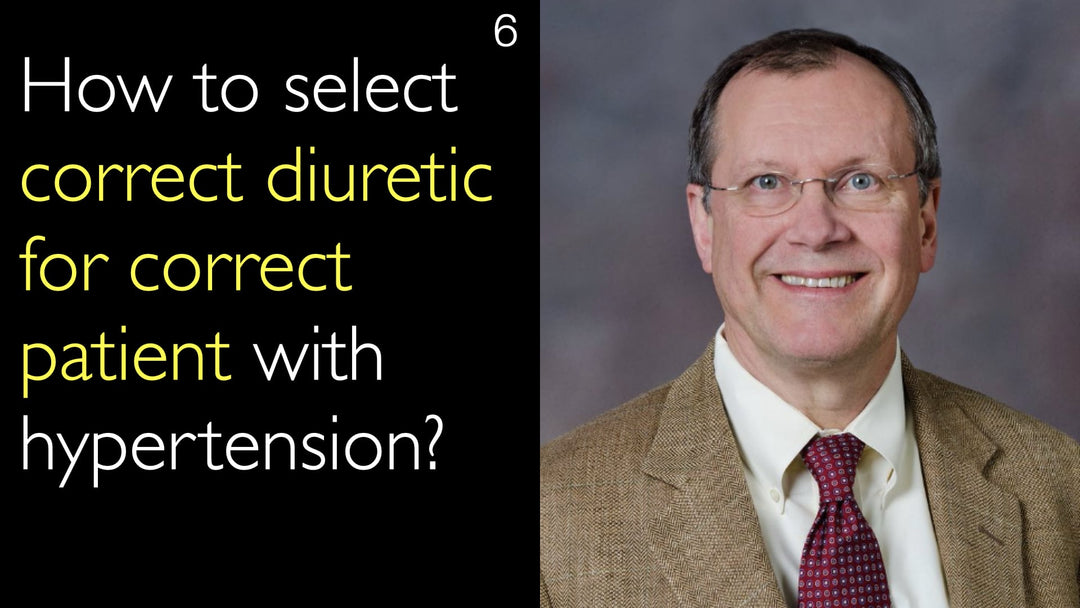Leading expert in hypertension and atherosclerosis, Dr. David Ellison, MD, explains why patients must take prescribed medications for these silent conditions. He addresses common patient concerns about side effects and polypharmacy. Dr. David Ellison, MD, emphasizes that antihypertensive drugs are time-tested, cost-effective, and life-saving. He details how physicians can switch medication classes if side effects occur. The ultimate goal is stroke and heart attack prevention through consistent treatment adherence.
Hypertension Treatment and Medication Adherence for Stroke Prevention
Jump To Section
- Understanding Silent Conditions
- Addressing Medication Concerns
- Managing Drug Side Effects
- Stroke Risk Reduction
- Patient Communication Strategies
- Full Transcript
Understanding Silent Conditions
Dr. David Ellison, MD, highlights a critical challenge in hypertension and atherosclerosis management. These conditions are often completely asymptomatic. Patients with high blood pressure typically feel perfectly fine. This creates a significant barrier to treatment adherence.
Dr. Ellison contrasts this with symptomatic conditions like heart failure. Patients who experience breathing difficulties are highly motivated to accept treatment. The absence of symptoms in hypertension requires a different educational approach from physicians.
Addressing Medication Concerns
Dr. David Ellison, MD, directly addresses common patient objections to antihypertensive therapy. Patients frequently express concerns about taking multiple medications. They worry about potential side effects and often research negative information online.
Dr. David Ellison, MD, emphasizes that these medications are "your friend" when properly prescribed. He notes that first-line antihypertensive drugs have been used in millions of patients. These medications are cost-effective and have low incidence rates of adverse effects when monitored properly.
Managing Drug Side Effects
Dr. David Ellison, MD, provides specific examples of medication management strategies. ACE inhibitors represent excellent antihypertensive therapy but cause cough in a substantial percentage of patients. This side effect can be particularly troubling for daily functioning.
Dr. David Ellison, MD, explains that angioedema represents a more serious though rare complication. The solution involves switching to alternative medication classes. Angiotensin Receptor Blockers (ARBs) provide similar benefits without the cough side effect. This flexibility allows physicians to tailor treatment to individual patient tolerance.
Stroke Risk Reduction
Dr. David Ellison, MD, presents compelling evidence for treatment adherence. Studies involving hundreds of thousands of patients demonstrate dramatic risk reduction. Antihypertensive medications significantly decrease the likelihood of both stroke and myocardial infarction.
Dr. Ellison finds that discussing stroke prevention particularly resonates with patients. The prospect of functional incapacitation often motivates better than abstract mortality risks. This risk reduction benefit applies at essentially any age, making treatment valuable across the lifespan.
Patient Communication Strategies
Dr. David Ellison, MD, emphasizes the importance of open communication about medication effects. He encourages patients to report any side effects promptly rather than discontinuing treatment. This allows for appropriate medication adjustments while maintaining cardiovascular protection.
Dr. Anton Titov, MD, facilitates this discussion by exploring practical clinical approaches. The conversation between Dr. Titov and Dr. Ellison focuses on real-world patient education techniques. These strategies help overcome the unique challenges of treating asymptomatic conditions effectively.
Full Transcript
Dr. David Ellison, MD: The third question I think that's asked to me, especially by my hypertensive patients, reflects the fact that hypertension and also incipient atherosclerosis are asymptomatic conditions.
It's unlike a patient with heart failure who comes in and they can't breathe. They will ask you to do anything, doctor, to try and make me feel better. The hypertension patients say, I feel fine. Why do you want me to take these drugs? I don't want to take so many drugs. I think drugs are bad for you. I read this and that, I Google it and it says all these drugs are bad for you.
So I spend a lot of time really saying that the drugs are your friend. We're not saying any drugs are your friend. We're saying we have drugs that are time-tested, that have been used in millions of patients, that don't cost very much and have very low incidence of side effects.
But we also know that the only way that these drugs are going to be useful to you and prolong your life is if you take them on a regular basis and don't be afraid of them. That said, if you do have a side effect, report it to me.
Because we started out talking about the classes of antihypertensive drugs. We have three, four or five different types of antihypertensive drugs. If one class is bothersome to a person, we can almost always switch to another.
The example would be ACE inhibitors. ACE inhibitors are fantastic drugs, but they do cause cough in a substantial percentage of patients and that cough can be very troubling. They can occasionally cause angioedema as well. That can be very troubling and potentially life-threatening.
But with those effects we can try an Angiotensin Receptor Blocker, which is very unlikely to cause a side effect like that.
So I think the question that is often asked is, Doc, why do I need to take so many drugs? Can I reduce the number of drugs? And there my answer is, we really know from studying hundreds of thousands of people that if you take the drugs, your likelihood of having a stroke or myocardial infarction is dramatically reduced.
Often talking about stroke as a risk is very compelling for patients, because people sometimes don't worry as much about dropping dead as they worry about getting incapacitated. Having a stroke, where you lose important function, is just something we all worry about.
This is a situation where antihypertensive drugs very clearly, at essentially any age, are very effective at reducing the likelihood of a stroke.







